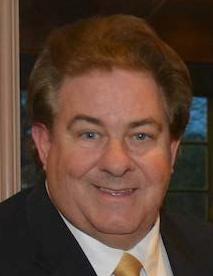Many people enjoy gambling as a recreational activity. However, sometimes an unhealthy habit forms that interferes with everyday life. Problem gambling can be as addictive as drugs or alcohol, and just as difficult to quit. The Trafalgar Addiction Treatment Center defines addiction as “a compulsive need to engage in a certain activity in spite of its harmful consequences.”
There are many forms of gambling. Most people are familiar with the common avenues, such as casino games, lottery tickets, horse racing and sports betting. To someone with a gambling addiction, these activities can cause the loss of employment, money and possessions, and can ruin family relationships. As with any addiction, one should be aware and ensure that an addiction is not formed, taking its toll on the individual’s life.
So at what point does a person know when their gambling has become an addiction? When a person can no longer control the urge to gamble, and it is affecting their life, their gambling has become an addiction. Once you or someone in your family becomes addicted, it can be difficult to see from within the grasp of the addiction. Therefore, it is extremely important to be aware of the symptoms to watch for. Some of the symptoms of problem gambling are lying about gambling or the money that has been lost, borrowing or stealing money to gamble with, and being irritable with friends and family members when speaking about gambling.
People are also reading…
For problem gamblers, the act of gambling stimulates a type of “high,” even when they are losing on their bets. People with substance use disorders, depression, anxiety and other mental health issues are at a higher risk of becoming problem gamblers. The state of New York has been criticized for spending extensive money promoting mobile sports gambling, which has increased the number of people in the 18- to 24-year-old bracket who have become problem gamblers. In addition to an increase in gambling, many people feel New York state should allocate more money for counseling and other services for problem gamblers.
In 2021, the National Council of Problem Gambling estimated the annual national social cost of problem gambling to be $7 billion, which includes gambling-related criminal justice and health care spending, as well as other consequences of gambling addiction. Two of the most common consequences of gambling addiction are the loss of a job and bankruptcy.

Timothy Donovan
One of the most devastating aspects of a gambling addiction is the fact that many people affected are financially unstable to begin with. For someone with an addiction, gambling can increase financial instability and lead to the most drastic negative consequences.
There are plenty of resources available to those who recognize their gambling has become an issue. Problem gambling cannot be cured, but it can be treated with counseling, therapy, peer advocacy and family support. A critical component is that the problem gambler has to recognize there is a problem and is willing to do something to change their lifestyle.
Voluntary self-exclusion, a new tool for the treatment of problem gambling, is available to those who want to help themselves. Voluntary self-exclusion is described as a process where people who recognize they have or might develop a gambling problem put themselves on a list at a gaming facility that blocks them from gambling for a specific period of time, or even permanently. All the gambler has to do is fill out an application online or at the facility’s security office. Once this ban goes into effect, gamblers may not enter the facility until the specified time has expired. Then the ban may be renewed or the person will be able to gamble at that particular facility. More information about this can be found at nyproblemgamblinghelp.org.
If you have or know or suspect someone you care about has a gambling problem, these resources may be helpful to you.
Local meetings
• Auburn Gamblers Anonymous: 7 p.m. Wednesdays at First Presbyterian Church, 112 South St., Auburn
• Baldwinsville Gamblers Anonymous: 6 to 8 p.m. Thursdays at Community Weslyan Church, 112 Downer St., Baldwinsville (closed meeting)
Other resources
• Gamblers Anonymous, a fellowship of men and women who support each other and help others to recover from a gambling problem: gamblersanonymous.org.
• Gam-Anon, a self-help organization for the spouses, friends or family of compulsive gamblers: gam-anon.org.
• GamTalk, a 24/7 moderated online peer support forum: gamtalk.org.
• The Central Region Problem Gambling Resource Center is funded by the New York State Office of Addiction Services and Supports, and provides services that focuses on raising awareness of problem gambling and advocating for those in need. These services include referrals to resources that best meet the needs of the individuals and their families, assessments of clients, treatment by licensed professionals and recovery support by referral to support groups such as Gamblers Anonymous or Gam-Anon. For more information, email [email protected] or call (315) 413-4676.
• New York Council on Problem Gambling, 100 Great Oaks Blvd., Suite 104, Albany, NY 12203: Call (518) 867-4084 or the free helpline at (877) 846-7369, email [email protected] or visit nyproblemgambling.org.
• National Council on Problem Gambling: Call 24/7 confidential helpline at 1-800-522-4700, or chat online at ncpgambling.org/chat.
Timothy Donovan, of Auburn, is an observer of the Cayuga County Alcohol and Substance Abuse Subcommittee, a certified alcohol and substance abuse counselor-trainee, a certified recovery peer advocate and a Cayuga County alcohol and substance abuse recovery advocate. He can be reached at [email protected].
